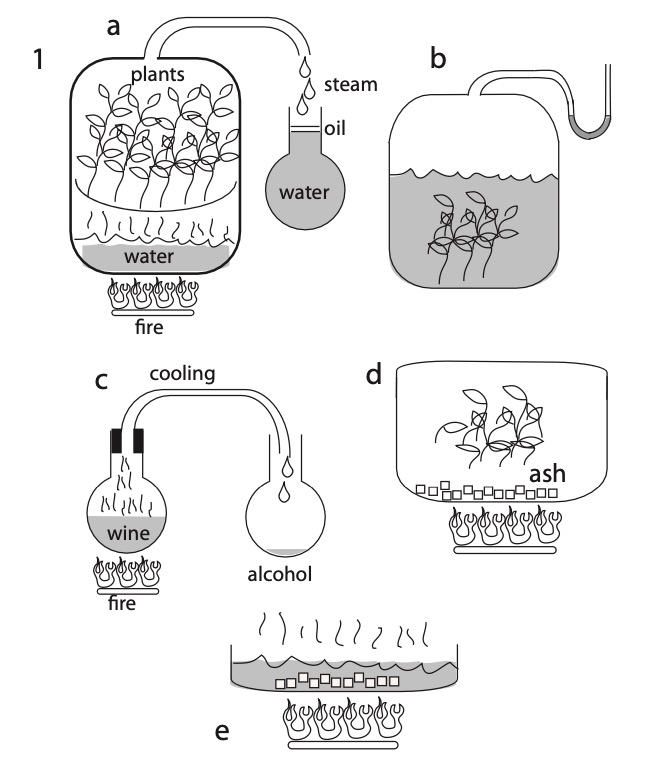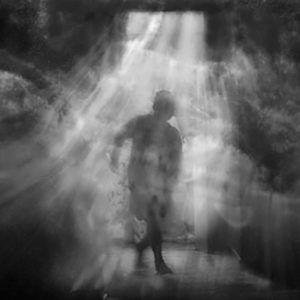Tuesday of Holy Week
By Dennis Klocek 14 min read
The theme is Tuesday of Holy Week.
Monday is the cursing of the fig tree. Tuesday is when there is a kind of turning. Tuesday is Mars day. Mars is aggression. There is a war of words that Christ was having with the Pharisees because he was out in the countryside preaching. He was cutting into the energy of the Pharisees by questioning many of their laws.
And he was healing on Saturdays, which was not permitted. That was a big deal. So here was an upstart claiming to be the son of God. The healing was kind of expected because that was how prophets established their street cred.
Apollonius of Tyana, a remarkable clairvoyant and healer at the time of Christ, was a more prolific healer than Christ was. However, Christ was fomenting an insurrection among the common people against the rule of the Pharisees. This was not something that Apollonius was doing. This was fomenting a revolution.
So on Tuesday of Holy Week, Christ is in Jerusalem and is teaching. The Pharisees come around and start asking questions, trying to play “gotcha.” They had their own spies who were out in the crowds, reporting that Christ was against the teachings. So they were trying to trip him up to make him appear untruthful.
They were speaking out of a kind of practical tradition of this is what the rule is.
But Christ responded that you are not talking about the kingdom of heaven. You are not talking about the son of man.
So He is in the temple teaching. Reading from St. Luke: Once when asked by the Pharisees when the kingdom of God would come, Jesus replied the coming of the kingdom of God is not something of the earth. It is not what you think it is. The kingdom of God is within your midst. The kingdom of God is within you.
That was a total slap in the face to the Pharisees who were all about coming to the temple to buy a dove so that you could be saved. Saying that the kingdom of God is within you was an insurrection.
In Matthew 23, there are the “woe to you” sayings. This is a thumb in the eye to the Pharisees. Woe to you teachers of the law. You hypocrites. You shut the door to the kingdom of heaven in people’s faces.
He is calling a spade a spade here. He’s prodding the bull. It is really fierce.
“You clean the outside of the cup.” That was one of the cleanliness laws of the Pharisees. If you are going to drink something you have to clean the outside of the cup.
This is a fierce language. He’s in the temple. They try to trip Him up. And He turns and blasts them.
There was a religious foment, and there was a political foment At this time, because of Roman law and Hebrew law, the common people were expecting the son of David, the savior, to take care of the Romans.
This is kind of apocalyptic. The Roman law would be thrown off and the scribes and Pharisees would be put in their place. And here was Christ saying woe to the scribes and Pharisees for they are hypocrites.
This is the setting in which Judas will eventually let Satan enter. There is a doorway here, politically and religiously.
That is tithing. 10% of what you make is donated. I was talking to a tax lawyer, he said, you wouldn’t think this would be the case but the people who get audited the most are the people who tithe. Because it is an easy way to scam. I give 10% of what I make to the church automatically. And then there is a kickback scheme. So if you really want to get audited, claim 10% tithing to the church.
That is what Christ is talking about here. They would give 10% of the spices for part of the taxes they owe to the church. This is like a 501-3C for Pharisees.
In Luke, Christ is teaching in the temple courtyards and proclaiming the good news. They come up and ask him by what authority He is doing these things. Who gives you the authority to say these things?
And He says I will also ask you a question. John’s baptism — was it from heaven? Or was it of human origin? This is a big deal because John was baptizing and setting the stage for Christ. The baptism of John was based on something called metanoia.
In the training that was done before baptism, it was understood that baptism gives you metanoia. The derivation of the word is that meta refers to the pole around which the chariot’s turned. Noia means nous or consciousness.
So metanoia means to change the way that your soul thinks about things. This was the foundation of John the Baptist. He was beheaded, martyred for teaching metanoia.
It means I can think for myself. I’m not thinking of what the Scribes and Pharisees are thinking. I have my own thinking that is outside fundamental dogma. I can make up my own mind.
And it was understood that when you had the baptism you became a free individual. This was not a happy idea for the establishment – to have a bunch of free thinkers running around. So get rid of the artists and poets because they are insurrectionists. So He was asking, is that metanoia of John from God or from a human?
Luke says they discussed among themselves. If we say it is from heaven, then He will ask why didn’t we believe him? But if we say it is from human origin, then the people will stone us because they are persuaded that John is a prophet. So they got caught in their own game. They played cat and mouse with him all of the time.
So they answered we don’t know where it is from. Then he said to them then neither will I tell you where my authority is from.
So that is the mood. If we relate that to this crucible, this is study and the mood of study. Does it yield information? Does it yield knowledge? Or does it yield wisdom?
The idea of metanoia is changing knowledge into wisdom. To change my thinking about what I know in order to be able to know what I think is impossible to know.
I change the way I form my questions in order to allow them to assimilate lessons that they are allowed to assimilate. I have to get rid of systems that are pre-formed in order to allow the spirit to move within me.
He was setting the stage for the apostles to have the experience that He could rise again after He was dead.
The experience is that if you die before you die, then you will not die when you die.
That is metanoia. He is speaking about the son of man, about the eternal part of the human being. Far in the future when the new mysteries will have to redeem the law of the Pharisees.
What Abraham taught became a corpse. It was good when it originated in the Old Testament because It gave people direction. But when it evolved into the law of the Pharisees and Scribes it became a den of thieves. It became fundamentalist and tradition bound. It didn’t allow for the growth of wisdom because it was based only on knowledge.
All you have to do is memorize the law and you’re saved. In certain parts of the world, there are whole swaths of real estate taken over by fundamentalists who will tell you how you should look, and what you should say when you pray. And if you don’t do that, they will kill you.
That is fundamentalism squared.
This is with us today. And it is still problematic. Is it knowledge or wisdom? There are two kinds of faith: dogmatic faith and authentic faith or undogmatic faith. Dogmatic faith is you must believe because you will never be able to know. That is the faith of the Pharisees.
Authentic faith is that you believe because you experienced something. The early Christian martyrs had authentic faith because they experienced the movement of the spirit. So they knew that even if the body was killed, they would not be killed. They had authentic faith because they were close to the enthusiasm of the metanoia. They were filled with that experience. They were charismatic. But eventually charisma can also become dogmatic scripture.
What I’m doing here is bringing the scripture, but it’s always a symbol, not the literal translation. It’s the inward experience of metanoia to bring newness into your life, which is what all of the religions talk about. But they give it predigested and programmed no matter what it is. That is the fundamentalist gesture.
In the morning in the temple He deals with the scribes and the Pharisees. Then He goes up to the olive grove on the mount of olives.
There He teaches them something known as the little apocalypse. This is in Luke 21,14. The message is to make up your mind not to worry beforehand.
You will not defend yourselves. These are the new mysteries. Do not think beforehand that scripture is going to save you. Do not think beforehand that what you know of Me is going to save you. But meditate without answers. Keep your mind free of thinking that you know. And if you do, words of wisdom will come to you that your adversaries will be unable to contradict.
You will be betrayed even by parents, by brothers and sisters, by relatives. And they will put some of you to death. This is not just physical death. They will also try to kill your spirit with their fundamentalism.
Everyone will hate you because of Me.
Not a hair of your head will be lost. Stand firm and you will have eternal life in spirit.
You must understand that you must give up having to have the answers.
This is fierce. Let’s go to verse 25:
the sun, the moon, and the stars. People will faint from terror. Heavenly bodies will be shaken. They will see the son of man coming in a cloud with power and glory.
The son of man is the Sophia. A soul that has been purified of desire and anger and expectation. That is his continual message that the son of man will come. The son of God has already come and they are going to trash Me. It is your work that needs to move this further.
There is a whole series of lectures on something called the new Isis. In those lectures, Steiner describes the Christ event which brought the phantom into the earth . It is a seed for the new Jerusalem. Christ is the spirit of the earth. It has already happened. He’s already here.
In the Isis lectures, Steiner says we have to search for the new Isis. In the myth of Isis, Isis was searching for Osiris because he was broken into pieces. He was broken into fragments through the treachery of his brother.
So Osiris is presaging Holy Week. And then Christ becomes the spirit of the earth. If Christ is the spirit of the earth then what are we supposed to be doing? Searching for the new Isis. And the new Isis is the eternal feminine, Sophia, the purified soul that allows us to transcend desire.
That is the new mystery. Hidden in these texts of the New Testament is the new mystery of the son of man.
After the apocalypse, people will see the son of man coming. Those who were working to create the son of man in their soul. The deal is that there is no blame, even for being really stupid.
The gesture here is not to think that you will know the answer. Just meditate and pray. In that meditation and prayer, you will be touching the mystery, participating in the search for the new Isis.
After the little apocalypse the gospels describe parables that Christ gave. A few parables about the son of man. To get a flavor of what this really means.
Given the war with the Pharisees, it is clear something is going to happen. His message is that the son of God has to die.
There is the parable of the persistent widow. I’m reading these to you because that gets at the difference between reading it literally and reading it symbolically.
Jesus told his disciples they should always pray unceasingly and not give up. Pray but don’t pray for anything, just pray.
The parable of the persistent widow who kept bothering the judge.
Faith, authentic faith, was an experience of the spiritual world that was really not a teaching or a dogma. It is an experience of compassion and caring for others, a willingness to serve others. That is the teaching of the new mysteries about freedom – what comes around goes around. What I put out comes back to me.
This parable sounds weird but it is really about the son of man. What happens on earth when the final judgment comes. The judgment will be judged by us. Because we will be, as St. Augustin said, the imitation of Christ. That is a famous phrase and also the title of a book.
So the gesture here in the parable is not about a judge and a widow. He is saying to them, look at this judge. He wants to get her off of his back. He is saying to them: think about the Father in heaven. If you get that right, who is going to judge you?
And when the son of man comes, he will say judge not, lest ye be judged. This is tolerance.
The parable of the Pharisee and the tax collector. There are many of these. If you read them literally they are about tax and money. And it gets very confusing because it is not about jurisprudence; it is about the son of man.
For those who were righteous in their own consciousness and looked down on others, Jesus told this parable. A fundamentalist parable.
Two men went to the temple to pray, one a Pharisee and one a tax collector. The Pharisee stood by himself and prayed. Thank you God that I am not like these other people, the robbers, evildoers and adulterers. Not like this tax collector. I fast twice a week and give 1/10 of all that I earn. But the tax collector stood at a distance. He would not even look up to heaven when he prayed. He beat his breast and said, God have mercy on me, a sinner. I tell you that this man rather than the other is justified before God. For all of those who exalt themselves shall be humbled. And those who humble themselves shall be exalted.
Let’s go back to our diagram. In figure 1.A, we have the extraction of oil through distillation. In 1.B, the fermentation process. In 1.C, the extraction of wine and the separation of the alcohol from the wine, burning what is left over to create an ash, an ash in water. What comes out of the ash into the water is a salt that was part of the life process of the plant to begin with.

In the growth of a plant, the salts, such as potassium and magnesium, draw water.
In the inner life of the soul, thoughts that we form are the salt of the thinking that we are doing. The word that you hear is the salt of the Word.
The note that you hear in music is the salt of the energy of the music. It is not the music. It is the death of music. The music is how your soul stretches from the fundamental to the octave and back again. That is how the soul hears music.
The difference between the salt and the ash is the essential issue of anthroposophy. There have been books written about salt. James Hillman spent his career writing about the alchemical salt, a dead thing that attracts life.
This dead part of me is the part that is of most interest to angels because they don’t understand it. My corpse is like graduate school for angels. What is that? Why are you so attached to it? And you’re eating a bunch of corpses in order to prevent the son of man? What is that about?
They don’t get it because they don’t have the potential for freedom. Being an angel is a hard job description because they have to get this stupid human to wake up.
So the forming of the salt is the knowledge of the Pharisees that came out of the wisdom of Abraham. But by the time that Christ had come back, the wisdom of Abraham was a corpse. It was just a bunch of stuff that was written and being used to subjugate the people. And He came back to say this is not what my Father had in mind: Pharisees making book on the common people. So I needed to come back. The people said He is back and He is going to whack the Romans and the Pharisees and we’re all going to have a ticket to ride. He will tell us what to do.
Christ said I am not going to tell you what to do. I am just going to tell you stories and you can do with them what you will. Here is a story about a judge and a widow. What do you think?
When you interpret them literally, it becomes what is called exegesis. But if you take it as a symbolic language, as an alchemical, metaphoric language, then it is about the future human, the son of man. Christ’s mission is to awaken in people their own divinity.
The Rosicrucian material is the middle of the Oreo cookie. It is not the end game. That has to do with the phantom – which is where this is going.
Tuesday has to do with these stories and the apocalypse and the stick in the eye of the Pharisees.
The study of the ancient books has led to a very fixed salt. When you burn the plant and purify the ash and extract the salt from the ash, and when you put that salt into water, the salt wants to make dogma, a crystallized experience of the divine.
So now we’re going to do a little inner picturing that will take us into lunch.
Glyph Exercise – Oil and Alcohol
If you look at the handout again, below the chart in Figure 4 we’ll work with the oil and alcohol glyph.
The way in which we will work with them is by drawing and erasing the glyph of the process for today.
When you are making a glyph and are drawing it inwardly, what is happening inwardly is that you are placing your consciousness into the field of geometry of those movements.



Dennis Klocek
Dennis Klocek, MFA, is co-founder of the Coros Institute, an internationally renowned lecturer, and teacher. He is the author of nine books, including the newly released Colors of the Soul; Esoteric Physiology and also Sacred Agriculture: The Alchemy of Biodynamics. He regularly shares his alchemical, spiritual, and scientific insights at soilsoulandspirit.com.
4 Comments
Leave a Comment
Similar Writings
Heart-Gemuet – Arms of the Heart
If we want to work with the idea of transforming the soul forces, one of the most potent areas for inner work is the region of the heart chakra. It is good to state right away that the heart chakra is not the actual physical heart. The chakra is a little more in the center…
The Book of Trials: On the Path to Seeing the Nature of Spirit
All those who seek to understand the world through the workings of spirit will meet the Guardian of the Threshold, who shows us our own true inner nature, the noble and the ignoble. To cross the threshold from the physical world into the spiritual as a practice of initiation, we are presented with trials through…

Thanks once again Dennis for shaking rocking the boat; like angel wings
So appreciate the ‘alchemy’ of your truthful insights with the glyph practice –
I attended the Alchemy of Holy Week class in 2018. So grateful for the seeds planted and deeper understandings now!
Blessings and thanx for all this amazing work its helping me a lot to go through .